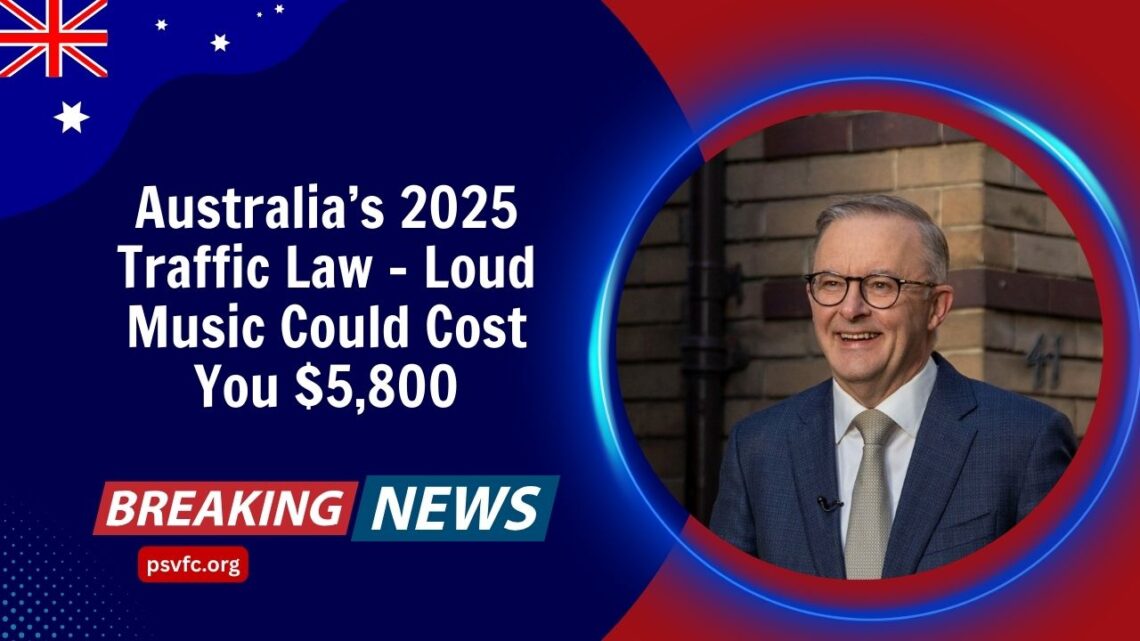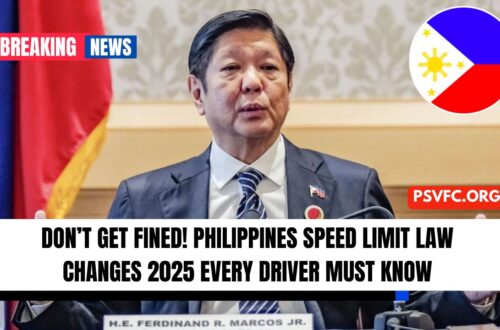Australia is famous for having some of the world’s strictest road safety rules. In 2025, a new law shocked many drivers: if you play loud music while driving, you could face a fine of up to $5,800. This update is part of the government’s larger plan to reduce distractions, improve driver focus, and make roads safer for everyone.
In this article, we will explain why this rule was introduced, how it works, how fines compare to other penalties, and what it means for daily drivers across Australia.
The $5,800 Fine Explained
The most eye-catching part of the new rule is the huge fine. Drivers caught with music considered “excessively loud” may need to pay up to $5,800.
This fine is one of the highest traffic penalties in the country. Authorities want drivers to know that road safety is non-negotiable. The amount can differ between states, but the national guideline is clear—loud music can cost you thousands.
How It Compares To Other Traffic Fines
| Traffic Violation | Average Fine Amount (AUD) |
|---|---|
| Playing loud music (2025 rule) | Up to $5,800 |
| Using mobile phone while driving | Around $1,000 |
| Not wearing a seatbelt | About $400 |
| Running a red light | Around $500–$600 |
| Speeding (depending on level) | $200–$3,000 |
The table shows that the loud music penalty is several times higher than other common fines. This highlights how serious the government is about the issue.
Impact On Daily Drivers
For regular drivers, this law means changing habits. Many Australians love listening to music while driving, but now they must keep the volume low.
- Families will need to guide teenage drivers about the risks.
- Car makers and audio companies may see less demand for loud sound systems.
- Everyday people will think twice before turning up the volume too high.
Police Enforcement And Monitoring
The responsibility lies with state and territory police. They will focus on city centers, beaches, nightlife areas, and other hot spots.
Some states are testing roadside noise detectors, like speed cameras, to automatically catch offenders. This could lead to fines without officers needing to stop drivers.
Public Reaction To The Rule
The public is divided:
- Supporters say it reduces noise pollution and makes cities more peaceful.
- Critics argue the fine is too high compared to other violations.
- Social media is full of memes and debates on whether this law is fair.
But regardless of opinion, the law is already active in 2025.
International Examples
Other countries already regulate loud music:
- Spain and Italy have strong anti-noise rules.
- Some U.S. cities issue heavy fines for disturbing neighborhoods.
- Australia now joins this global movement to curb in-car noise.
Advice For Drivers
- If music is heard outside your car, turn it down.
- Keep windows closed when listening.
- Avoid bass-heavy systems at high volume.
- Stay focused on the road first—music second.
Remember: One violation could cost $5,800.
Possible Legal Challenges
Some legal experts say drivers may challenge the law in court, arguing it is too vague. However, lawmakers believe the rule is strong enough to survive. Until then, drivers should assume the fines will remain valid.
This may only be the first step. Future rules might target other distractions like video screens or complex infotainment systems. The main goal remains safer, calmer, and quieter roads.
The Australia loud music fine 2025 has become one of the strictest traffic rules in the country. With a penalty of up to $5,800, the government wants drivers to take distractions seriously. While opinions are mixed, the law is clear—enjoy your music but keep the volume low.
This rule aims to reduce accidents, protect drivers and pedestrians, and create more peaceful communities. Road safety is about awareness, and now even your playlist volume can make a difference.
FAQs
How much is the fine for playing loud music in Australia in 2025?
Drivers can face a fine of up to $5,800 if caught playing excessively loud music.
How is loud music defined under the law?
If music can be heard 10 meters or more from outside the vehicle, it is considered too loud.
Which areas will police focus on for enforcement?
Police will mainly target city centers, beaches, nightlife spots, and areas with frequent noise complaints.






